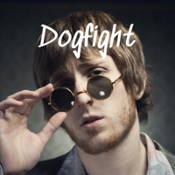
Overview
Synopsis
In 1967, Eddie Birdlace returns from the Vietnam War. He is going back to San Francisco, where he spent his last night in the United States before shipping out. His memories of that night flood back: It is November 21, 1963, and Eddie and his best friends Boland and Bernstein (The Three Bees) decide to spend their last night before deployment in a “dogfight”: who can find the ugliest girl in town and bring her to a party where she will be judged? The marines enthusiastically jump into the cruel contest. But when Eddie finally finds Rose Fenny, an awkward waitress who has never been on a date, he has a change of heart. She learns about the dogfight, but is determined to not let it define her as an ugly and pathetic girl, and her optimism has a profound effect on Eddie’s worldview. Adapted from a 1991 film of the same name, Dogfight is a statement about the military culture of the 1960s and the inevitable realization that no one is invincible. But even with this knowledge, it is possible for each person to have a profound and positive impact on the world around them.
Show Information
Context
Plot
Characters
| Name | Part Size | Gender | Vocal Part |
|---|---|---|---|
|
Lead |
Male |
Tenor |
|
|
Lead |
Female |
Mezzo-Soprano |
|
|
Supporting |
Male |
Tenor |
|
|
Supporting |
Male |
Tenor |
|
|
Supporting |
Female |
Mezzo-Soprano |
|
|
Supporting |
Female |
Non-singer |
|
|
Supporting |
Male |
Tenor, Baritone |
|
|
Supporting |
Male |
Tenor, Baritone |
|
|
Supporting |
Male |
Tenor, Baritone |
|
|
Supporting |
Male |
Tenor |
|
|
Supporting |
Male |
Non-singer |
|
|
Featured |
Female |
Non-singer |
|
|
Featured |
Female |
Non-singer |
|
|
Featured |
Male |
Non-singer |
|
|
Featured |
Female |
|
|
|
Featured |
Female |
Non-singer |
|
|
Featured |
Male |
Non-singer |
|
|
Featured |
Female |
Non-singer |
|
|
Featured |
Male |
Non-singer |
|
|
Ensemble |
Either Gender |
Soprano, Mezzo-Soprano, Alto, Tenor, Baritone |
Songs
Act I
- “Prelude: Take Me Back” - Rose, Birdlace and Company
- “Some Kinda Time” Birdlace and Marines
- “We Three Bees” - Birdlace, Boland and Bernstein
- “Hey Good Lookin’ ” - Marines and Girls
- “Come to a Party” - Birdlace and Rose
- “Nothing Short of Wonderful” - Rose
- “Come to a Party (Reprise)” - Rose, Marcy, Birdlace and Marines
- “That Face” - Lounge Singer and Marines
- “Dogfight” - Marcy and Rose
- “Pretty Funny” - Rose
Act II
- “Hometown Hero’s Ticker Tape Parade” - Birdlace, Boland, Bernstein and Marines
- “First Date”/”Last Night” - Rose and Birdlace
- “Before It’s Over” - Rose
- “Give Way” - Rose and Company
- “Some Kinda Time (Reprise)” - Birdlace, Boland, Bernstein and Marines
- “Come Back” - Birdlace
- “Finale: Take Me Back” - Company
A song with an asterisk (*) before the title indicates a dance number; a character listed in a song with an asterisk (*) by the character's name indicates that the character exclusively serves as a dancer in this song, which is sung by other characters.
Monologues
Scenes
Key Terms
An adaptation is a reworking of a story from one medium or cultural context into another, such as turning a novel into a play or updating a classic play’s setting. Adaptations often reinterpret themes, characters, and style for new audiences. They can range from faithful recreations to bold reimaginings.
Videos
Quizzes
Sorry! We do not currently have quizzes for this guide.
Themes, Symbols & Motifs
Sorry! We do not currently have learning modules for this guide.
Quote Analysis
Sorry! We do not currently have learning modules for this guide.
